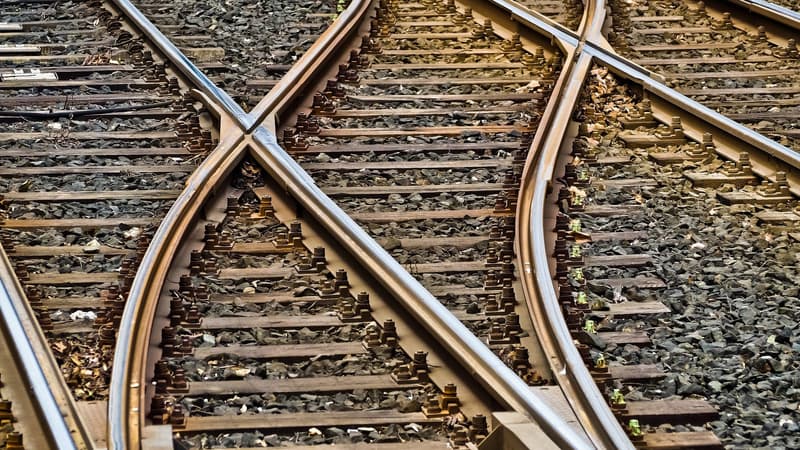The rail disaster, which killed 57 people in Greece, has reignited doubts about the safety of France’s rail network, often portrayed as ancient or even dilapidated in some places. We remember in particular the accident at the Brétigny-sur-Orge station 10 years ago. Do we risk a similar tragedy in France?
“Perhaps not so much, but a series of reports have shown that there are 10,000 kilometers of the so-called ‘sick’ lines in France, without maintenance, it is a third of the French network”, estimates in BFMTV, Matthieu Bolle-Reddat , CGT General Secretary Paths of Versailles. “Dangerous lines whose speed is reduced (of trains, editor’s note) artificially because if we traveled at normal speed, there would be a risk of major derailments.”
“10,000 kilometers of so-called ‘sick’ lines”
The observation is shared in part by Philippe Tabarot, senator LR of the Alpes-Maritimes and rapporteur for the rail transport budget: “It is the small lines, of about 9000 kilometers, the good service, which provide the most because they are not priority investments. Very they often slow down, for half of them, and slowing down is the first step towards closure.” “Our country is not investing enough,” the elected official stresses.
But for Matthieu Bolle-Reddat of the CGT, the real problem is “the progressive privatization” of the SNCF. Although the management and maintenance of the network is carried out by SNCF Réseau, a 100% subsidiary of SNCF, therefore a public company, “we have subcontractors who have subcontractors, temporary workers and therefore all the know-how -how and all the safety knowledge of the SNCF in the work and maintenance of the network is out of the way”.
100 billion for the railway, but what financing?
“Network maintenance is calamitous compared to what we could find 20 or 30 years ago,” he asserts. “We have a worse maintained network than 40 years ago.”
For Philippe Tabarot, it is not the direct or indirect privatization that raises doubts but “the lack of resources. 10,000 million euros are missing each year for the network, an additional 500 million are missing for modernization.”
Let us remember that after the report from the Infrastructure Guidance Council, the Government announced a plan of 100,000 million euros until 2040 for rail transport, specifically to regenerate the network.
However, there is the question of financing. The State will pay only 20 or 25 billion, Europe, the regions but also the motorway and air companies will also contribute. A perspective that already arouses opposition.
Source: BFM TV


